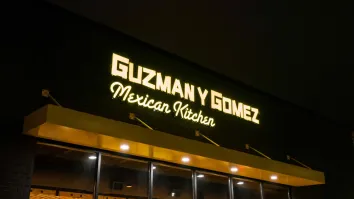
McDonalds, KFC and Hungry Jacks lead exodus of fast food from CBD
The most recent Colliers Radar by Daniel Lees, Director of Research at Colliers International found that rising rents, landlord preferences and nimble independent operators are the driving force behind the exodus of QSRs from Australia’s CBD locations.
“We’ve seen this trend emerge in the past 12-18 months and the reality is that as rents increase in our CBDs, traditional fast food outlets are shifting their market share to metropolitan and regional areas where their profit margin is higher,” said Julian Demetrovics, Director of Retail Tenant Advisory at Colliers International.
“They’ve got the most recognisable logos in the world and the opportunity cost of capital is outweighing their desire for brand presence in the CBD.”
While it’s widely recognised that consumers are making the switch to healthy dining alternatives, soaring CBD rents and the emergence of high end, independent restauranteurs are having a more measurable impact on this trend.
Retail landlords are increasingly replacing traditional food courts with contemporary dining precincts, targeting a new breed of tenant to deliver unique food offerings in their centre.
These changes have seen traditional fast food retailers such as McDonalds, Hungry Jacks and KFC re-evaluate their network expansion strategy within the CBD, and focus their efforts on enhancing their value proposition in metro areas by capitalising on convenient formats such as drive through.
“Some players are bucking the trend though. Guzman y Gomez, Oporto and Domino’s Pizza are actually increasing their footprint in our CBDs, sacrificing seating and reducing store format to better suit CBD locations,” said Michael Bate, Head of Retail at Colliers International.
The latest Colliers Radar anticipates that the issues faced by some traditional QSRs in CBD locations may also flow through to select metro markets such as North Sydney and Parramatta, where office vacancy levels are falling and rents are increasing.

























